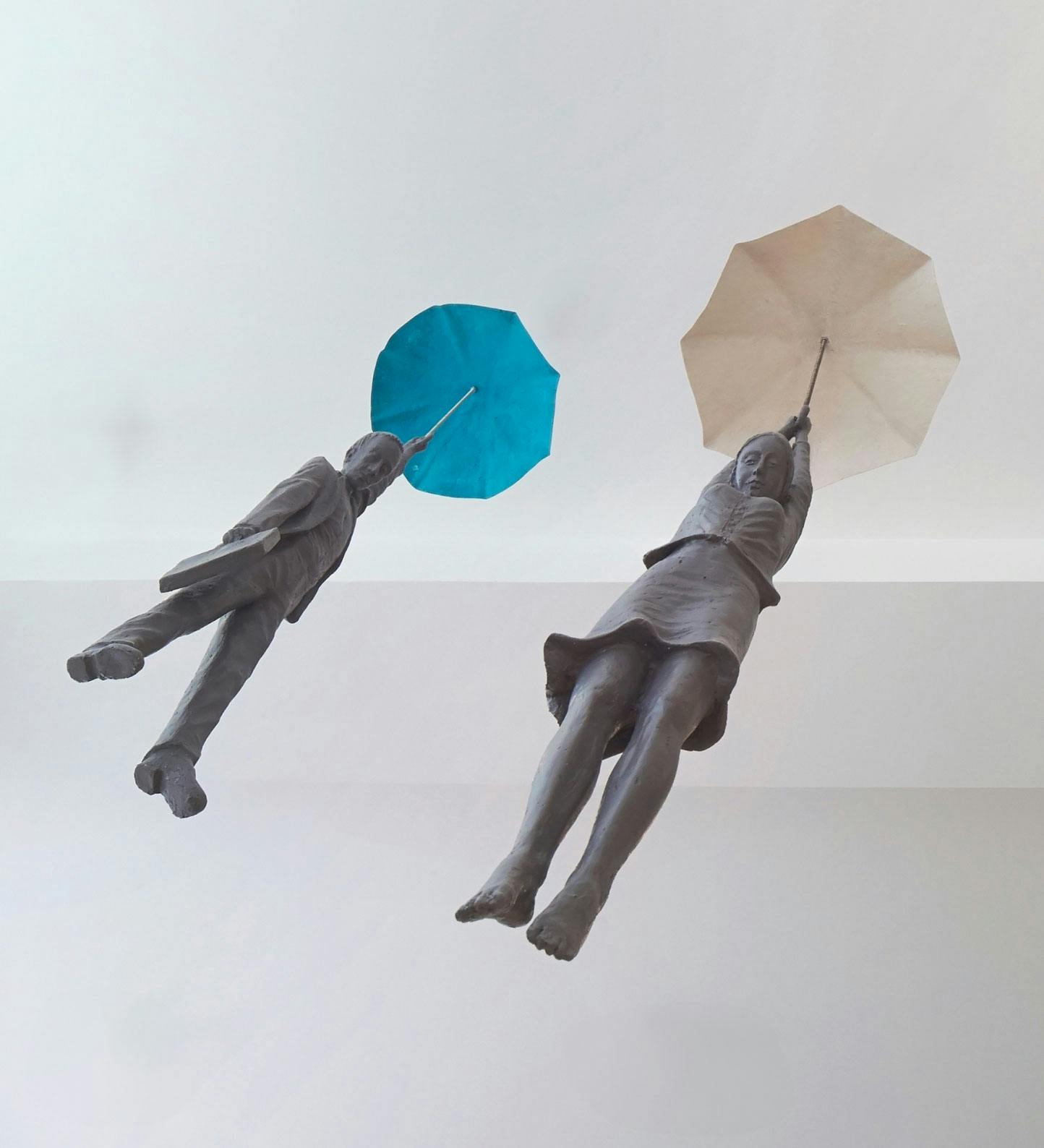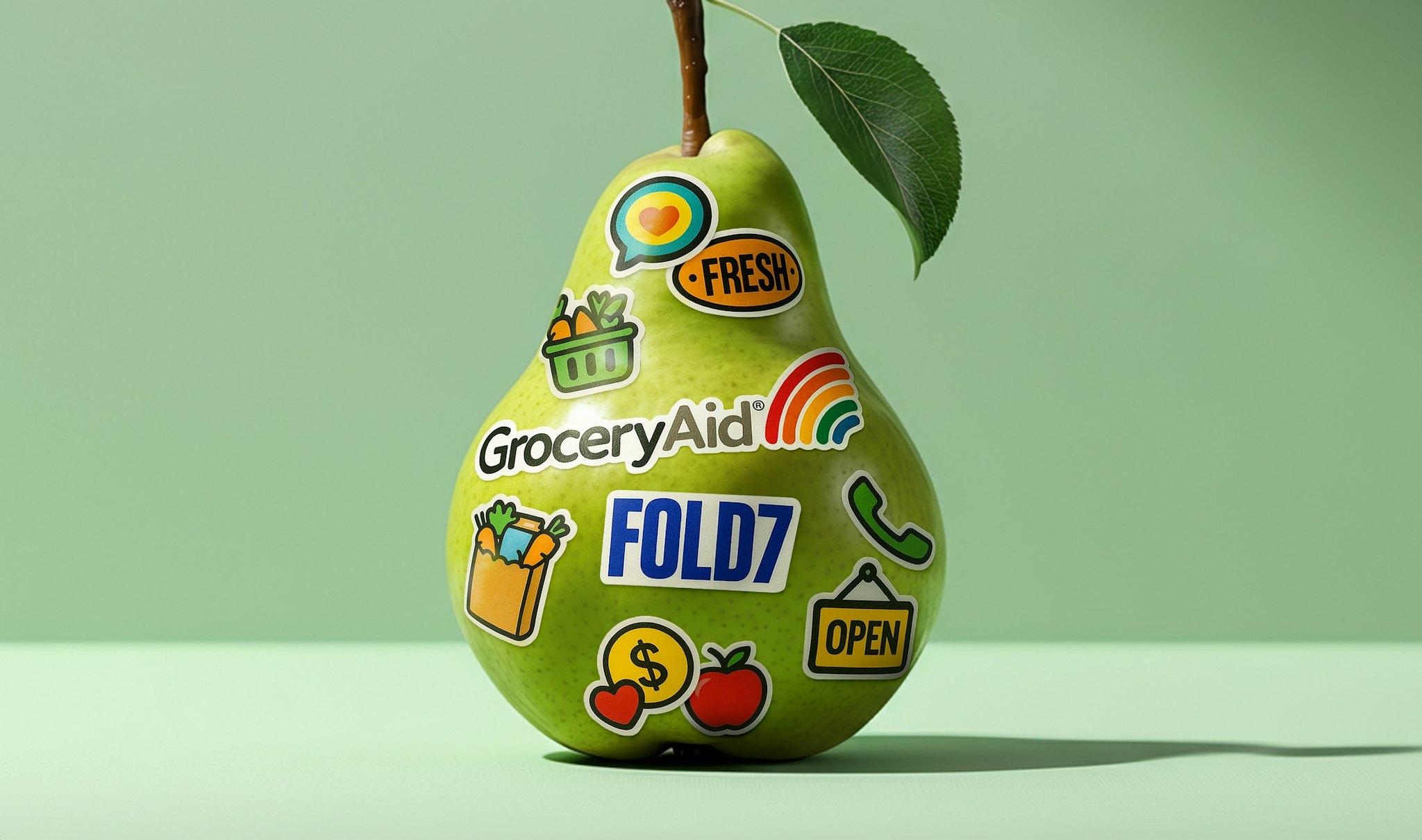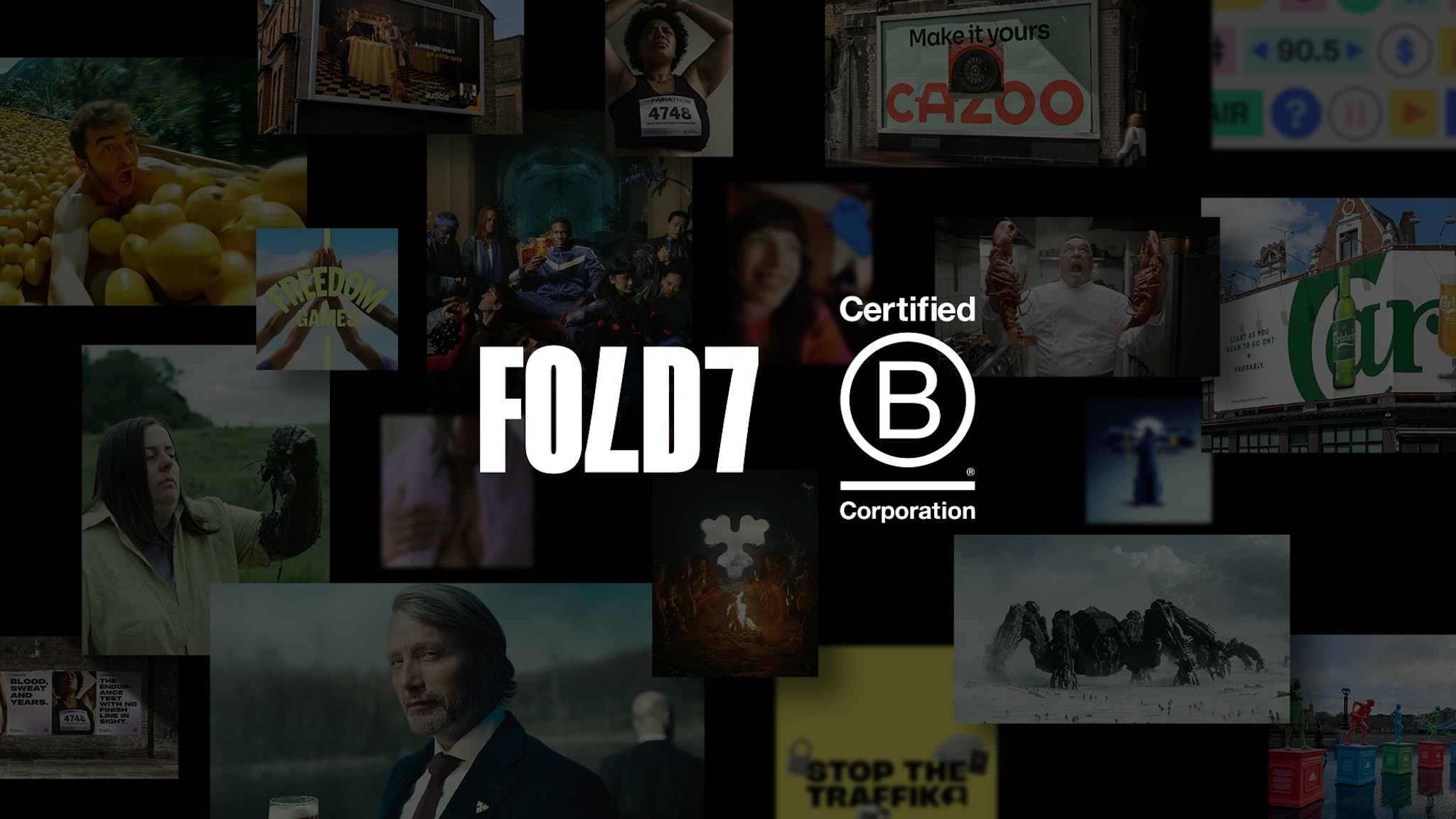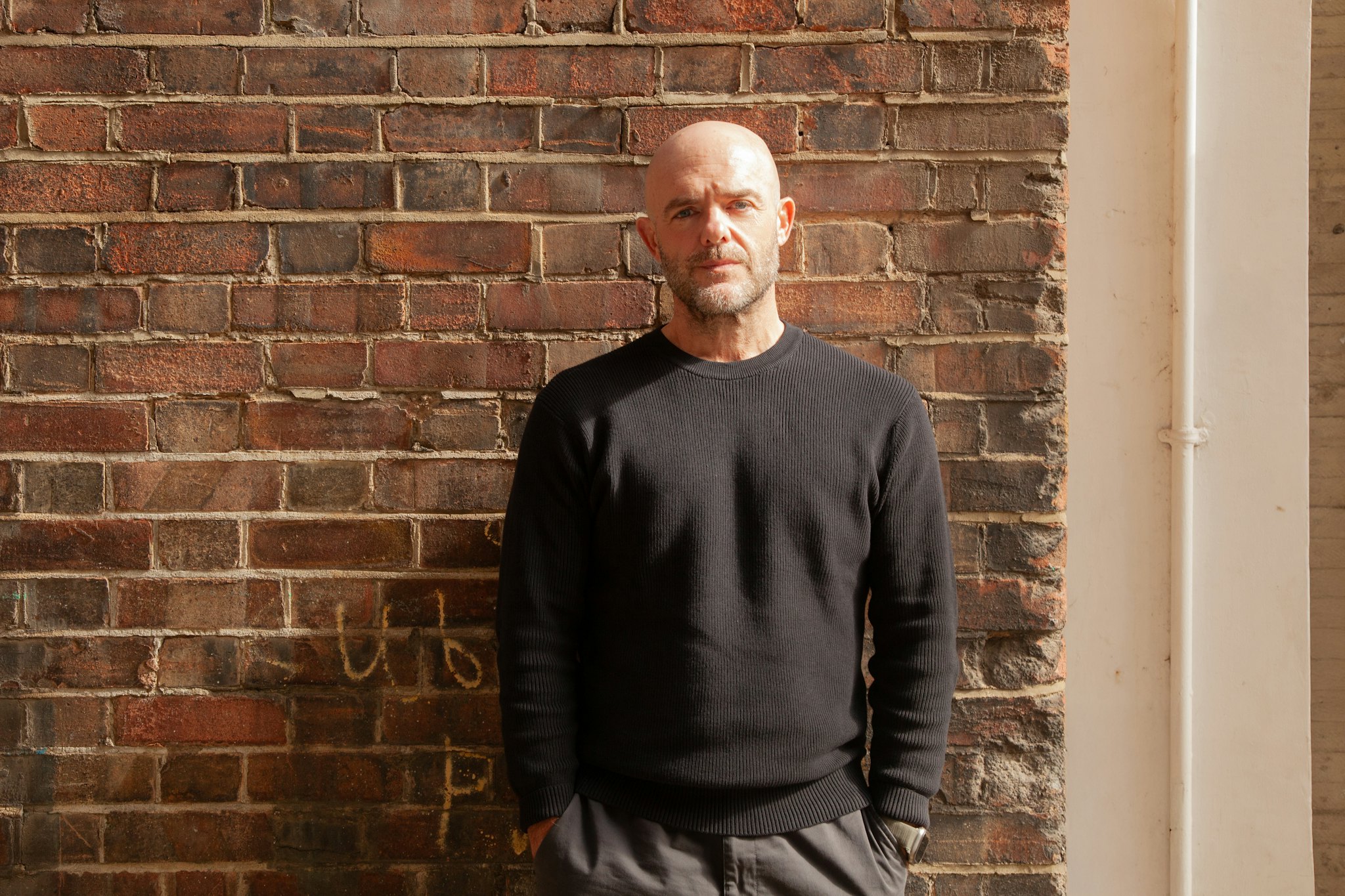
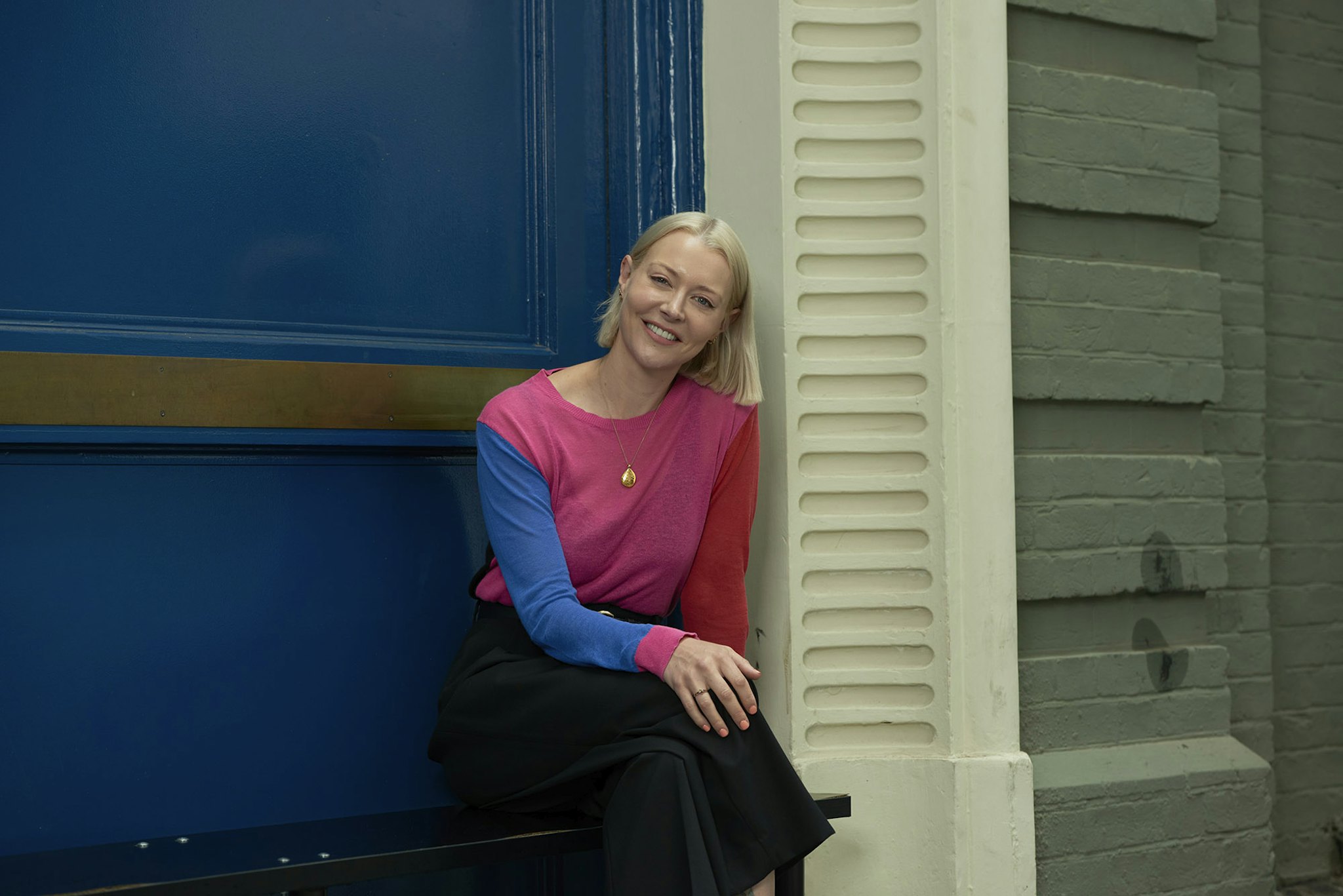
Standing Proud with Fold7's CGO, Hannah March
To celebrate Bi Visibility Day, Fold7’s chief growth officer talks to LBB’s Jordan Won Neufeldt about why bisexuality is sometimes called ‘the invisible majority’, navigating coming out and bi-erasure, and the three pillars required to build internal culture capable of truly serving minorities
Fold7’s chief growth officer talks to LBB’s Jordan Won Neufeldt about why bisexuality is sometimes called ‘the invisible majority’, navigating coming out and bi-erasure, and the three pillars required to build internal culture capable of truly serving minorities.
For Hannah March, Fold7’s chief growth officer, the decision to talk about her sexuality – especially as a queer woman married to a man – was not the easiest thing to do at first. In a world of bi-erasure, where it often felt simpler to let assumptions be made, for many years, there was just something about the state of adland’s work culture which made being private feel like the best option – a sentiment many queer people are still all too familiar with.
For these reasons, and many others, today, Hannah is a public, passionate advocate, especially when it comes to the realm of 2SLGBTQIA+ support. Never afraid to share her thoughts on the power of authentic leadership, and keen to be visible as she truly is, the CGO places a big emphasis on leading internal DEI initiatives and pushing for more female representation in boardrooms, all whilst heading up growth strategy, and juggling a position at Outvertising to boot. Guided by the philosophy that where you come from doesn’t dictate where you go, all of this comes together in her pursuit of causes she truly believes in, including a desire to help other members of the queer community feel comfortable being themselves, and tackling the deeply-ingrained factors which sometimes make this feel impossible.
To learn more about all of this, and explore what her journey looked like, on World Bisexuality Day, LBB’s Jordan Won Neufeldt sat down with Hannah for a chat.
Hi Hannah! Please introduce yourself and tell us your story!
Who am I? Big question. If anyone has seen the film ‘The Life of Chuck’, this answer could be multitudinous. So, to make things easy, let’s start with what I do now.
I’m chief growth officer at creative agency Fold7, where I’m responsible for agency brand reputation and new business. I’m also a mum of two wildly energetic boys (three and six), who are equal parts chaos and joy. And I’m a bisexual woman, married for more than seven years to a man I want to grow old with.
I’d like to start with the information that I have quite a lot of bisexual friends – friends I have known and been close to for many years, but when we first met, we all presented as straight. Our group identity at the time was basically ‘straight mates’. Over the years though, the truth shifted for each of us at different times. For me, it was when I entered what became a long-term relationship with a woman, right before I met my husband. For others, it came differently. A quiet admission, an open relationship, or even a still unspoken truth that’s silently supported.
I find this interesting, because it speaks directly to why bisexuality is sometimes called ‘the invisible majority’. We’re often unseen, partly because many of us end up in opposite-sex relationships (mathematically that’s more likely, because most people aren’t open to same-sex ones). But also, because a great many of those decide not to mention their sexuality at all.
To quote a dear friend of mine, Dominic Arnall, CEO of youth charity Ditch The label and fellow bi-parent, “The truth is that there’s never a great moment to announce you’re bisexual. People are usually happier with whatever they’d assumed.”
As demonstrated by my own experience, this is true in personal life, but it’s particularly true in work situations. There were only ever a handful of close work colleagues that knew about my dating history. I have a husband; it felt easier not to bring that up when assumptions are already made.
The great worry, of course, is the shifts we cannot make because of the lack of visibility for a vast swathe of the 2SLGBTQIA+ community. That’s what really drove my decision to be louder about it. Exposure to diverse identities helps develop empathy and understanding, creating a world where everyone can live openly and safely.
When you finally did come out, how did things go? Have you faced any discrimination since, especially in the realm of bi-erasure? And, knowing what you do now, would you have done things differently?
I never had a ‘ta-da!’ coming-out moment at work. It was more of a drip-feed – a deliberate choice to stop editing myself. If a work chat reminded me of something from a past relationship, I’d say “my girlfriend” instead of hiding behind the word ‘partner’. At first there were raised eyebrows, but nothing dramatic. News travels naturally, especially in workplaces. Getting involved with Outvertising also gave me courage and community. I realised how fulfilling it is to connect with others who’ve lived similar experiences.
Discrimination? No, not directly. But bi-erasure? Constantly… both from the straight and 2SLGBTQIA+ community. (Mainly with an assumption of ‘straightness’ as I have mostly dated men). That’s quite tough to deal with because it delegitimises who you are. It used to make me question myself, but now I know my identity doesn’t disappear because someone else finds it easier to file me in a box.
With that in mind, is there any advice you’d give, both to people who are struggling to be their full selves at work, but also to companies in how they can make this easier for their employees?
For individuals, this isn't on you. If your workplace doesn’t feel safe, don’t gaslight yourself into staying. There are companies where you’ll be celebrated, not just tolerated. And don’t underestimate the power of community. If you’re in the UK, go to an Outvertising social. Having a safe space outside of work can make all the difference inside of work.
To companies, we need to platform diverse voices in our businesses. Not just from within the queer community, but all communities that form the incredible melting pot of cultures, backgrounds and identities that the UK is. When a company does this, it automatically opens the door for everyone in that business to feel more comfortable in their own skin.
Unfortunately, at the moment, there’s a lot of companies right now that are stepping back from things like DEI. What are your thoughts on the state of the union, both in the UK and beyond? Is there anything you’d like to say to them?
Honestly? It’s short-sighted. The data is crystal clear. EY tells us 63% of employees factor DEI into where they choose to work. GLAAD tells us 77% of non-2SLGBTQIA+ people feel warmer towards brands who visibly include us.
So, when companies pull back, they’re not just harming underrepresented groups – they’re harming their own pipeline of talent, brand equity, and future relevance. Culture wars may shift the headlines, but the numbers don’t lie.
Building on this, given your own experience as chief growth officer, how can business leaders internally help develop good practices to build culture for all?
I think of it as three pillars:
1. Reassure. Make it known that diversity isn’t a ‘nice-to-have’; it’s central to your business and our industry.
2. Represent. Keep policies alive, champion your people, and ensure our work actually reflects the world we live in.
3. Be visible. Take a stance, and where visibility is tricky, channel resources into NGOs, charities and pro-bono work that uplift communities. Silence doesn’t cut it anymore.
Of course, your nine-to-five isn’t everything – you’re also on the management board of Outvertising! What are you working on at the moment, and how does your agency experience help shape the way you approach this commitment?
Yes, and it’s one of the most rewarding things I do. Outvertising exists to make UK marketing and advertising truly 2SLGBTQIA+-inclusive. That means training, consultancy, activism, and much more. Brands need support feeling empowered to get it right, and that’s where we come in.
Right now, we’re gearing up for our big annual event, Outvertising Live, at Curzon Soho this November. It’s a day packed with panels, keynotes and workshops designed to give marketers and agencies the tools to build inclusive workplaces and campaigns. If you’re in the industry, grab tickets (before they vanish). Or better yet, sponsor it (DM me on LinkedIn) and show you’re serious about driving change.
With all this dedication and commitment, what do you get up to outside of business hours, to ensure your wellbeing too? Do you have any suggestions for other queer people?
Spending time with my family and friends is, of course, my favourite out-of-work activity. But, I get a lot of energy from devoting time to causes I believe in, whether that’s working with my colleagues at Outvertising, marching and campaigning for the Palestinian people, or finding a rad group of mothers working to bring up boys (and girls) with a healthy attitude toward themselves, their peers and life. My advice is to gravitate towards those people and places that give you that energy.
Finally, is there anything you’d like to say to fellow LGBTQIA+ people, both in marketing and advertising, and beyond?
The world – and this industry – needs your perspective. Your queerness is valuable.
This article was first published in LBB Online. For more views from Fold7, click here.
More Suggested Articles
Sign up to hear
more from us.
We'll add you to the mailing list so you can read our
latest news, views and cunning ideas.

